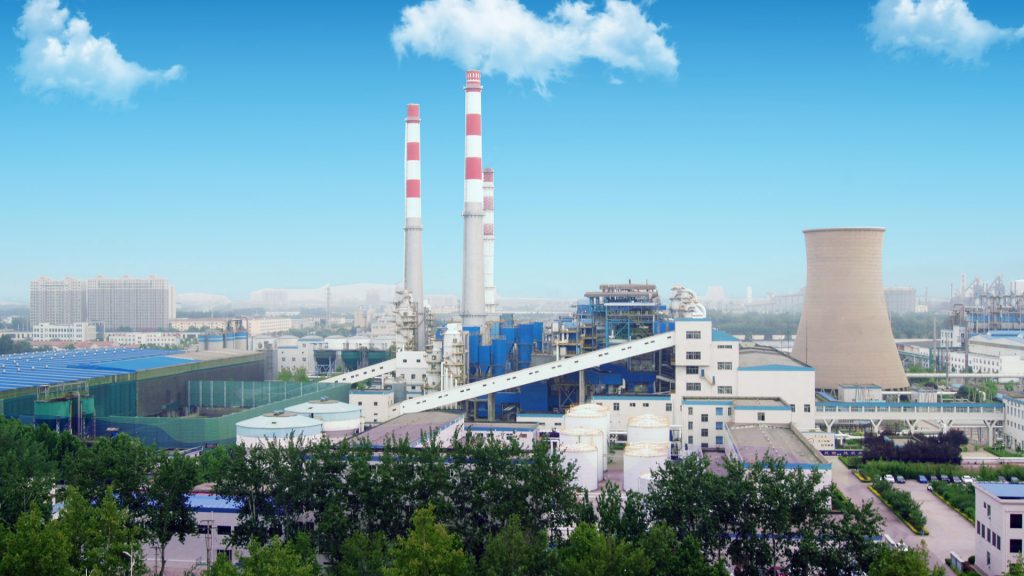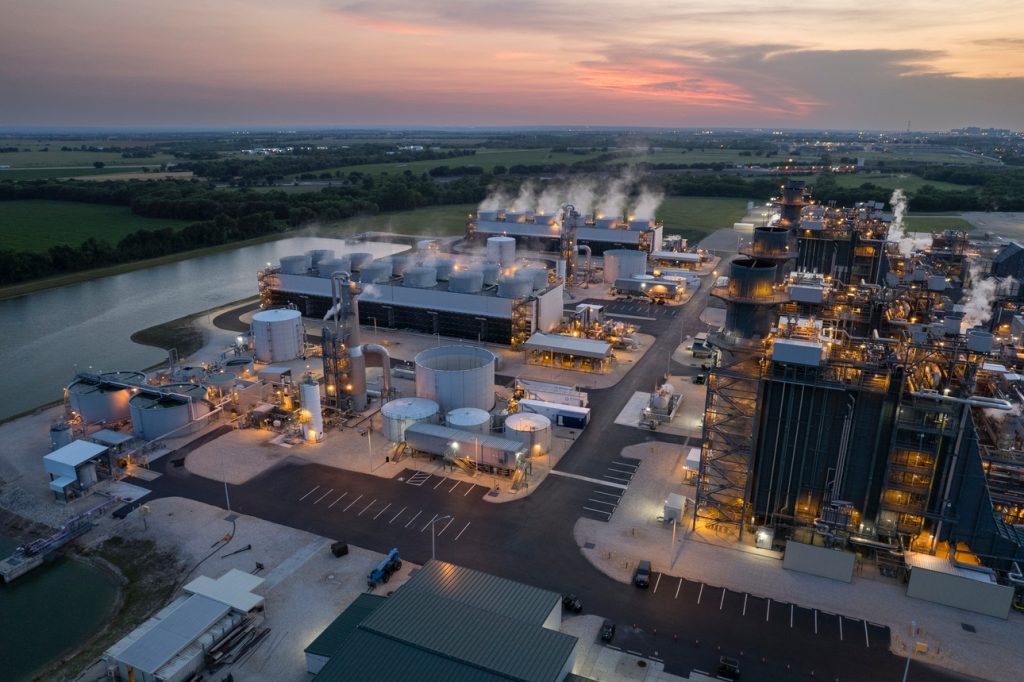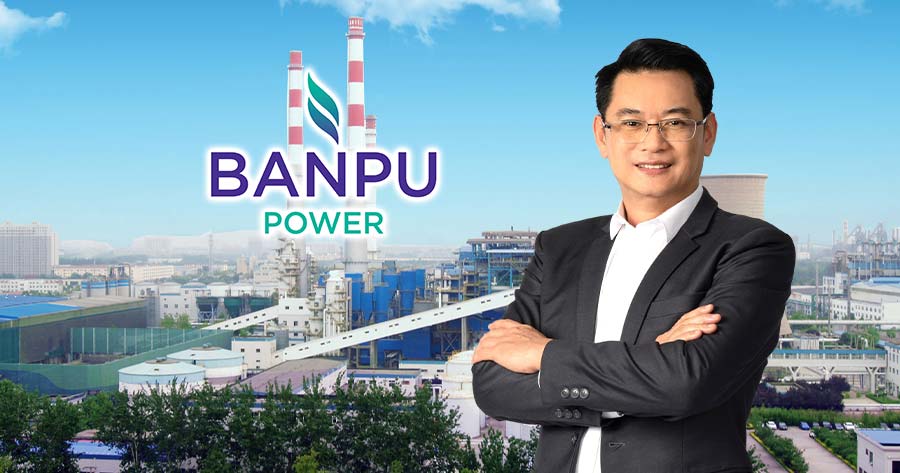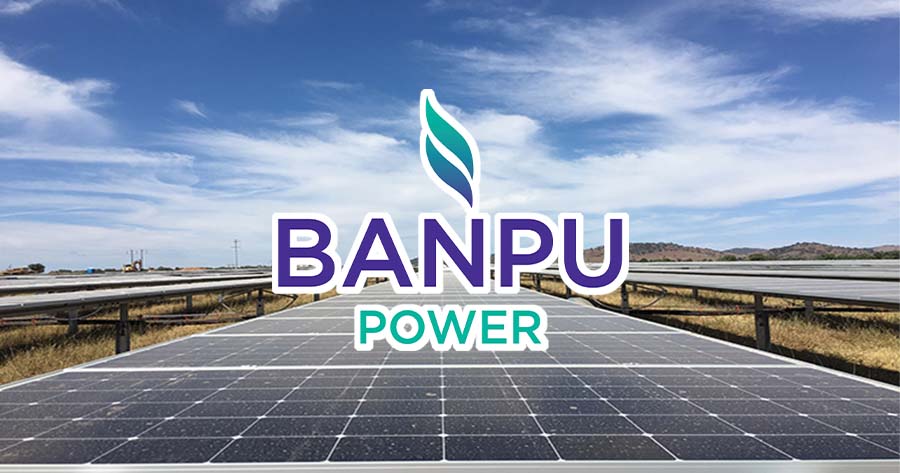- Electricity sales from gas-fired power plants in the United States have increased by 55%, yielding an additional recognized revenue of 2,811 million baht.
- Power plants in China performed well due to increased sales of electricity and steam.
Banpu Power Public Company Limited (BPP), an international quality power generating company, reported its operational results for the first quarter of 2024 with a total revenue of 6,305 million baht, an increase of 2,822 million baht or 81% compared to the same quarter in the previous year. The earnings before taxes, interest, depreciation, and amortization (EBITDA) reached 1,512 million baht, an increase of 318 million baht compared to the same quarter in the previous year.* This success is attributed to the performance of the Temple I and Temple II gas-fired power plants in the United States, as well as the enhanced performance of the Combined Heat and Power (CHP) and Shanxi Lu Guang (SLG) power plants in China. Their increase in revenue was driven by increased sales volumes of electricity and steam, and stringent, efficient cost management.

Mr. Issara Niropas, CEO of Banpu Power Public Company Limited (BPP) said,“BPP prioritizes the reliable production at all of our power plants along with efficient cost management to ensure consistent cash flow. In the first quarter of 2024, we saw strong operational results, particularly due to our operations in the US and China. In the US, the Temple I and Temple II gas-fired power plants increased their electricity sales by 587.82 gigawatt hours, a rise of 55% compared to the same quarter last year, recognizing revenue of 4,062 million baht, up by 2,811 million baht compared to the same quarter last year. In China, the combined heat and power plants recorded revenue of 2,243 million baht, an increase of 11 million baht compared to the same quarter last year, due to the rising demand for electricity and steam. Additionally, we are focused on growth while maintaining a strong, stable financial standing amidst the fluctuations in the energy business, and investing in efficiency and sustainability for the future.”
The energy technology part, in which the Company invests through Banpu NEXT Company Limited, continues to expand. As to the Battery and Energy Storage System Solutions (BESS) business, the Li-ion battery factory under a partnership between Banpu NEXT and SVOLT Energy (Thailand) has commenced commercial operations and delivered over 20,000 battery sets to customers in Thailand, with an annual production target of 60,000 sets. Moreover, the battery assembly plant of DP NEXT, a joint venture between Banpu NEXT and Durapower, has produced and delivered its first batch of batteries to Cherdchai Motor Sales, Thailand’s largest bus service provider. Recently, Banpu NEXT also introduced a clean energy solution in line with contemporary lifestyles by launching the second phase of the ‘Infinite Cafe Powered by Banpu NEXT’ project at Chamchuri Square, featuring a pop-up cafe with a power-generating solar rooftop with integrated electricity storage batteries. Additionally, the district cooling system for Zone C of the Government Complex is expected to be fully operational in the fourth quarter of this year.

“BPP as an international quality power generating company, is committed to powering society with quality megawatts. We aim for strong growth while generating good returns for shareholders. Historically, BPP has consistently paid dividends every year, and we intend to continue delivering stable returns to our shareholders. We are also focused on expanding our business value chain, evaluating investments in areas that offer stable returns through our fourfold growth strategy, which includes 1. expanding the growth in quality megawatts CCGT with a focus on the US market, 2. maintaining a balance portfolio between PPA and Merchant markets, 3. Expanding the investment in CCUS projects to reduce carbon emissions, and 4. investing in energy infrastructure and BESS, which help to stabilize the energy transition towards a sustainable ecosystem for energy consumption. The strategy underlines our commitment to providing consistent returns for shareholders and creating sustainable value for all stakeholders,” concluded Mr. Issara.





